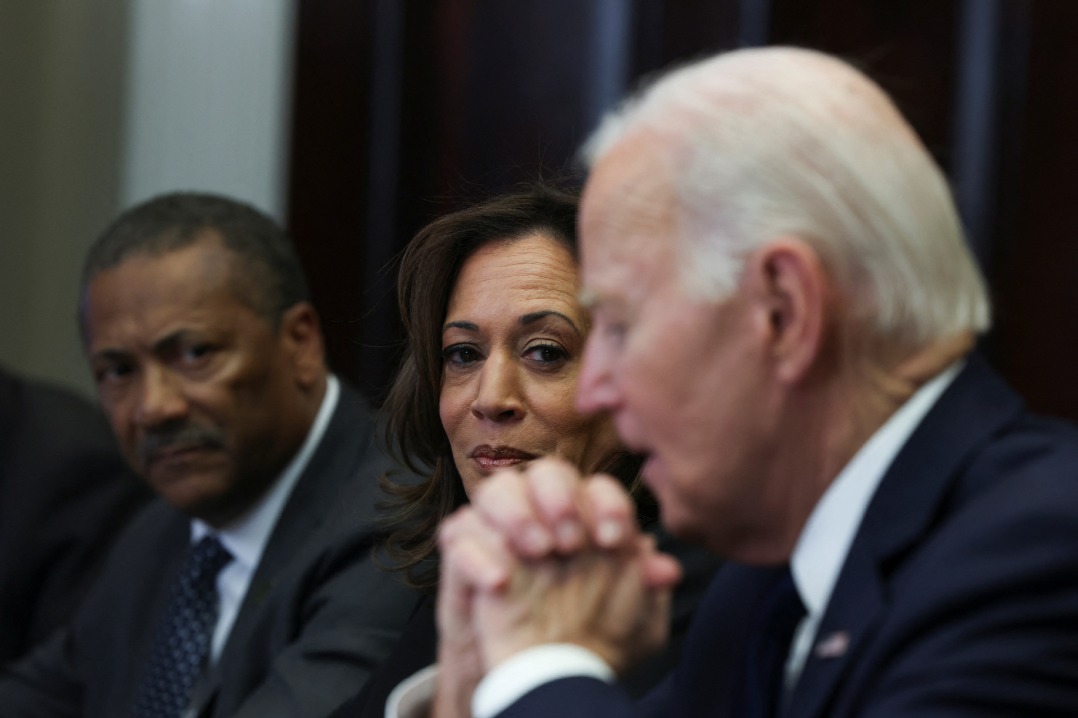Experts' views at the 10th Beijing Xiangshan Forum
By Arseny Sivitsky, Neil Davison and Piyal De Silva | China Daily | Updated: 2023-10-30 06:55

Editor's note: The 10th Beijing Xiangshan Forum, being held from October 29 to 31, will see the participation of experts from more than 90 countries, regions and international organizations. The event, with its focus on the security concerns of the international community, aims to promote peace. Following are excerpts from three experts' essays delivered at the forum.
World today needs multipolar arms control
Arseny Sivitsky
The Cold War period was characterized by a bipolar power architecture dominated by the United States and the Soviet Union. Arms control negotiations focused primarily on limiting the nuclear arsenals of these two superpowers, exemplified by the Strategic Arms Limitation Talks and the Intermediate-Range Nuclear Forces Treaty.
But today's post-Cold War multipolar world requires a multipolar approach to arms control. However, the old formats of arms control regimes and treaties, especially those in Europe and between Russia and the US(such as the Vienna Document, the Treaty on Conventional Armed Forces in Europe, the Open Skies Treaty and the INF Treaty) can serve as valuable models for the development of multipolar arms control regimes, both globally and regionally.
Today, several major powers, including the US, Russia, China and some regional actors such as India and Pakistan, possess significant nuclear capabilities. In addition, non-nuclear states continue to pursue nuclear weapons, further complicating the global security landscape. Cyber warfare, hypersonic missiles, artificial intelligence, and autonomous weapons systems have blurred the lines between conventional and nuclear warfare.
These developments pose new challenges to strategic stability by increasing the potential for miscommunication or miscalculations. Hence, multipolar arms control regimes should not only address traditional military capabilities but also include measures to combat asymmetric threats such as terrorism, cyberattacks, and the proliferation of weapons of mass destruction.
Multipolar arms control regimes must embrace the emerging technologies and integrate them into the broader framework of strategic stability. Ensuring that all nuclear-armed and technologically advanced states participate in such an agreement is essential to preventing the inadvertent escalation of conflict.
Despite its compelling advantages, the establishment of multipolar arms control regimes faces several challenges. The first is the reluctance of emerging powers to participate in such agreements, often citing historical disparities between their nuclear and conventional arsenals. Addressing these concerns will require diplomatic finesse and concessions from the existing nuclear powers.
Another challenge is the verification of compliance. Ensuring that all parties fulfill their commitments is a perennial issue in arms control. It is a daunting challenge to develop effective verification mechanisms that respect the sovereignty of participating states while ensuring transparency.
However, respect for the United Nations Charter is not only a fundamental principle of international law, but also a crucial cornerstone for the establishment of multipolar arms control regimes. Emphasizing the need to respect the UN Charter is essential to upholding international norms, promoting cooperation among nations, and ensuring the legitimacy of any arms control framework. Multipolar arms control regimes should be designed to prevent conflicts and reduce the likelihood of states resorting to force as a means of settling disputes, in keeping with the UN Charter's core objective of maintaining international peace and security.
The UN Charter emphasizes the central role of diplomacy and the peaceful settlement of disputes. Arms control negotiations, as a diplomatic endeavor, are consistent with the UN Charter's principles of peaceful settlement of disputes.
The UN Charter enshrines the principle of sovereign equality of all member states, regardless of their size or power. Multipolar arms control regimes should respect this principle by providing equal participation and decision-making opportunities for all countries, nuclear and non-nuclear.
The UN can therefore serve as an important platform for promoting discussions and negotiations on multipolar arms control regimes and strategic stability. Through a combination of diplomatic initiatives, transparency measures and cooperation-building efforts, the UN can play a central role in reducing the risks associated with arms proliferation and ensuring a safer and more stable world.
The first essential steps and initiatives can be taken by the "Permanent Five" members of the UN Security Council (the United States, Russia, China, the United Kingdom and France) because of their unique status as both nuclear-powered states and permanent Security Council members. Their cooperation and leadership are essential to advancing global disarmament efforts and ensuring the stability of the international system.
The P5 can also play a critical role in strengthening existing arms control agreements, such as the Nuclear Non-Proliferation Treaty and the New START Treaty. They should lead by example in upholding the UN Charter and these agreements.
By focusing on reducing the risk of arms races, enhancing strategic stability, addressing emerging technologies, and promoting diplomacy and trust, multipolar arms control regimes can play a central role in ensuring international security.
However, the path to such a regime is fraught with challenges, including divergent interests, verification issues, concerns about inclusiveness, and the need for adaptability.
Nevertheless, the need for multipolar arms control regimes is clear, and the international community must work together to overcome these obstacles — because the stakes are too high, and the consequences of inaction too dire — to develop a new paradigm for arms control and strategic stability.
By creating a UN-led global forum for dialogue and cooperation, multipolar arms control regimes can provide a platform for states to address their security concerns and grievances, reducing the likelihood of misunderstandings and miscalculations that can lead to conflict.
The author is director of the Center for Strategic and Foreign Policy Studies, CEO of Sarmat AnalytiX, and a member of the Younger Generation Leadership Network on Euro-Atlantic Security.
























